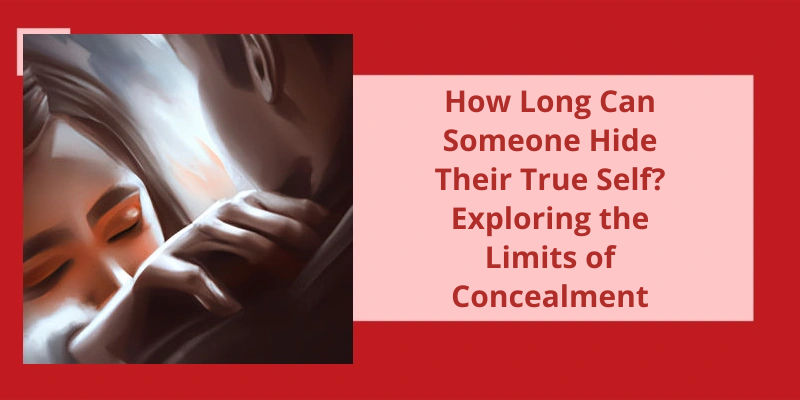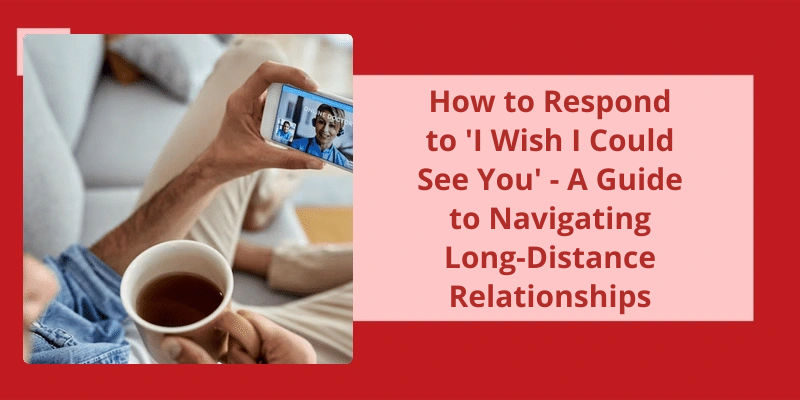As social beings, humans tend to present themselves in a manner that they believe will be accepted by society. However, it isn’t uncommon for individuals to hide certain aspects of their true selves for fear of rejection or judgement. The longevity of this hiding can vary depending on the individual's level of self-awareness, the depth of their concealment, and the environment they find themselves in. Ultimately, there comes a point where the truth will emerge, and this moment is often referred to as the make-or-break point. It’s a crucial juncture where individuals have to decide whether to continue hiding or to reveal their true selves, risking potential repercussions. But how long can a person hide? This is the question that’s been asked by many, and while there’s no straightforward answer, psychologists suggest that it usually takes around six months for someone to reveal their genuine character, but it can happen much faster if you’re observant enough to notice the signs.
What Happens When You Hide Your True Self?
When individuals hide their true selves, they’re essentially burying a crucial part of who they are. This can lead to a number of negative outcomes including low self-esteem, depression, and anxiety. When we aren’t able to be true to ourselves, it can create a sense of pressure and stress that can be difficult to shake. Additionally, hiding ones true self can often lead to feelings of loneliness, isolation, and disconnection from others.
Without the ability to be honest with ourselves, we aren’t able to understand our own motivations, desires, and needs. This can make it difficult to make important decisions in life and can lead to a lack of direction or purpose.
It’s important to be true to yourself in order to live a more authentic and fulfilling life and to build genuine connections with others. By embracing our true selves, we can find greater happiness, purpose, and meaning in life.
The Impact of Societal Expectations and Peer Pressure on Hiding One’s True Self
Societal expectations and peer pressure can influence an individual to conceal their true identity and conform to the norm. This can harm a person’s mental health and self-esteem.
Whatever the reason, it’s clear that the decision to conceal one’s true personality can have far-reaching effects on both personal and professional relationships. In this article, we’ll explore some of the common reasons people hide their real selves and the potential consequences of doing so.
Why Do People Hide Their Real Personality?
On a deeper level, many people hide their true selves out of fear of being vulnerable or judged. Opening up about personal struggles or flaws can feel risky and expose us to potential criticism or rejection. This fear of vulnerability can be especially strong for those with past negative experiences of rejection or trauma.
Additionally, societal pressures and expectations can also contribute to hiding ones true self. Many people feel the need to conform to a certain image or role, whether it be gender expectations or cultural traditions. For example, someone living in a conservative community might hide their alternative lifestyle out of fear of being ostracized.
In some cases, people may hide parts of their identity to protect themselves from discrimination or harm. This is especially true for marginalized communities such as LGBTQ+ individuals, people of color, and those with disabilities. These individuals may feel the need to downplay certain aspects of their identity in order to avoid discrimination or even physical harm.
Lastly, some people hide aspects of their identity simply out of habit or comfort. They may have lived with a certain persona for so long that it feels like a part of them, even if it isnt reflective of their true self. It can feel scary to step outside of that comfort zone and risk judgment or rejection.
Overall, there are a multitude of reasons why people might hide their true selves. It’s important to remember that everyone has their own journey and experiences that shape their decisions. Creating a safe and accepting environment for others to feel comfortable being their true selves can go a long way in promoting understanding and compassion.
In today’s society, conformity often seems to be the norm, which can make it difficult to break free from the pressure to hide our true selves. However, the consequences of masking are significant, and it’s essential to understand how it can impact our mental health. Let’s explore this concept further to better understand why masking is something we should try to avoid.
What Is It Called When You Hide Your True Personality?
It can also lead to difficulties in forming genuine connections with others, as youre not being your true self in the presence of others. Masking requires a high level of cognitive effort and can lead to feelings of exhaustion and burnout.
These conditions can make it difficult for individuals to feel comfortable being themselves around others, leading them to mask their true personalities as a coping mechanism.
Ultimately, the decision to mask ones true personality is a deeply personal one. While it may provide temporary relief from the pressures of societal expectations or the pain of past experiences, it can also prevent individuals from experiencing the fullness of authentic connection and emotional expression. Recognizing the costs of masking and seeking support from trusted friends, family members, or mental health professionals can be a step towards a more fulfilling and authentic life.
As human beings, we often find ourselves conforming to the expectations of society and wearing different masks to fit in. It’s not easy to show our true selves when we fear judgment or rejection. This fear can lead to a lack of self-expression and cause anxiety within ourselves. In this article, we will explore why people hide their true selves and the impact it’s on their lives.
Why Do People Hide Their True Selves?
We all come into the world as unique individuals, but over time, we learn to conform to societal norms. It’s a way of fitting in and avoiding criticism and rejection. Unfortunately, the cost of this conformity is often our true selves. We may start to believe that our individuality is unacceptable or wrong, or that others won’t like us if we show it. This fear can be so strong that we suppress our true selves to avoid judgment or rejection.
Society has certain expectations of how we should act, look, and even think. It can be difficult to break away from these expectations and show our true selves, especially if they deviate from whats considered normal. Even if we want to express ourselves, we may feel like were going against the grain and that can be scary. The fear of being judged or misunderstood can cause people to hide their true selves.
At times, people also hide their true selves in response to traumatizing experiences in their past. If someone has experienced ridicule, discrimination, or abuse for expressing who they truly are, they may start to believe that this part of themselves is unsafe or unacceptable. For them, hiding their true selves is a way of staying safe and protecting themselves from harm.
Love and loneliness are two factors that people tend to balance in life, and the expression of one can interfere with the other. Some people may hide their true selves in order to avoid loneliness, while others may feel compelled to hide themselves in order to appease a partner who demands conformity. In both cases, hiding who they truly are can create a sense of discomfort and disconnect from their own identity.
Ultimately, people hide their true selves for a variety of reasons, and it’s important to understand that this is a complex issue that can’t be solved overnight. It takes time, patience, and a willingness to explore who we truly are in order to break free of societal norms and express ourselves authentically. By understanding why people hide their true selves and offering support and acceptance, we can help create a world in which everyone can feel free to be their authentic selves without fear of judgment or rejection.
The Long-Term Effects of Hiding One’s True Self on Mental Health and Overall Well-Being.
- Increased levels of stress and anxiety
- Feelings of loneliness and isolation
- Difficulty forming genuine connections with others
- Decreased self-esteem and confidence
- Development of unhealthy coping mechanisms, such as substance abuse or disordered eating
- Impaired mental and emotional health
- Reduced overall well-being and quality of life
Conclusion
Human beings are inherently complex and multifaceted creatures, and it's only natural that we might feel the need to hide certain aspects of ourselves from others. However, as much as we may try to conceal our true selves, we can’t escape the inevitable truth that our actions, words, and behaviors will eventually reveal who we really are. While it's possible to maintain a façade for a short period of time, the make-or-break point usually occurs around the 6-month mark or even earlier. The time has come for us to accept and embrace ourselves for who we truly are, and to start being honest and authentic in our interactions with others. After all, it’s only when we’re true to ourselves that we can truly connect with others and form meaningful relationships that stand the test of time.






